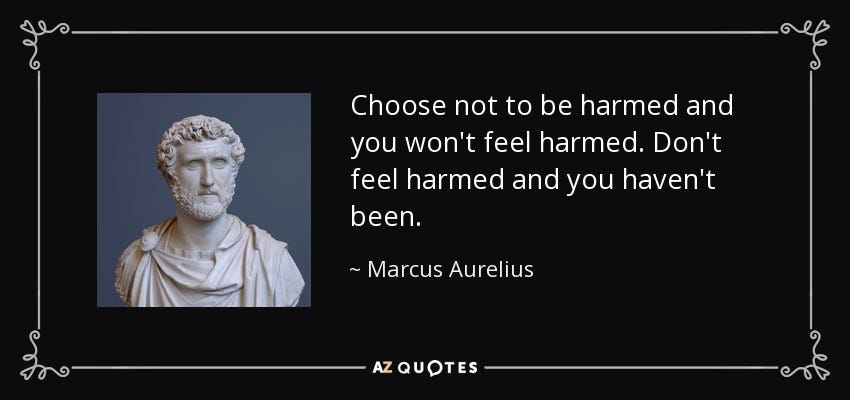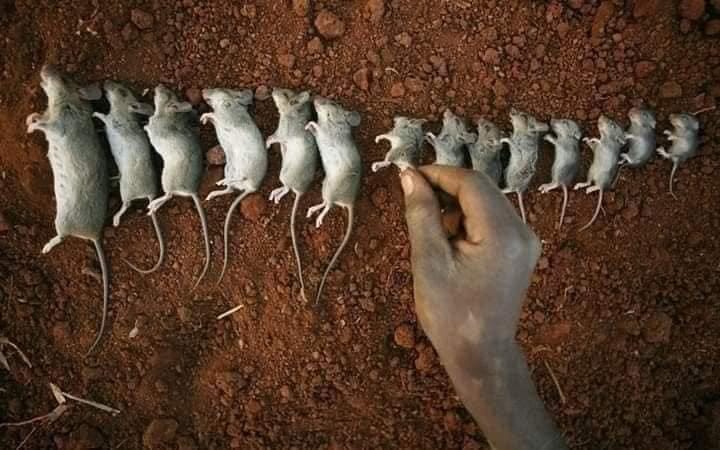Trauma and Antifragility
When Avoiding Trauma Hurts More
Welcome to Polymathic Being, a place to explore counterintuitive insights across multiple domains. These essays take common topics and investigate them from different perspectives and disciplines to come up with unique insights and solutions.
Today's topic expands on a concept known as Antifragility and how, without trauma, antifragile systems cannot get better with time. The challenge is that the human body and brain are naturally antifragile and so pathologizing most of what we might call life deprives us of the very stimulus we need to grow stronger and unlock our full potential as human beings.
Introduction
A few years ago I was talking to a friend about growing up and they commented about how much trauma they’d had. I had to push my jaw back up because I knew them well. They had loving parents, a comfortable lifestyle, and never wanted for anything.
“Did you suffer abuse?” I asked, worried I had missed something.
It ended up being nothing like that. He described things like having to take a summer job, being expected to complete homework, having to go to church with his family, and heaven forbid, having imperfect parents who sometimes made mistakes.
While he was describing this trauma other words ran through my mind such as ‘accountability,’ ‘punctuality,’ ‘meeting commitments,’ ‘expectations to apply themselves.’ I had to ask where he came to the realization this was trauma and he said it was his therapist. When I asked when this happened, he said it was mostly before he remembered it. Before he was 10 years old.
So how do you know a therapist is just shaking you down for money? Because it described normal childhood, but without the luxury of explicit memories, so it gets to be nicely filed away with zero need for evidence, but with a healthy dose of self-righteous indignation that you suffered trauma. It also becomes a crutch for many other challenges in life. Yet what we see over and over is that this is classic scope creep.
“Concepts that refer to the negative aspects of human experience and behavior have expanded their meanings so that they now encompass a much broader range of phenomena than before … [producing] an ever-increasing sensitivity to harm.” Such concept creep, Haslam notes, “runs the risk of pathologizing everyday experience and encouraging a sense of virtuous but impotent victimhood.”
Concept creep: Psychology’s expanding concepts of harm and pathology - Nick Haslam
Take for example Drexel University’s Center for Nonviolence and Social Justice in their definition of trauma
“… we suggest that relatively more subtle and insidious forms of trauma—such as discrimination, racism, oppression, and poverty—are pervasive and, when experienced chronically, have a cumulative impact that can be fundamentally life-altering.”
Not only do we have the pathologizing of everyday experience but also of politics and the rub of human tribalism. It is also not healthy mentally or physically as we are seeing major increases in teen anxiety and not just in self reporting but on medical reports of self-harm.
The book Saving Normal explores the recent phenomenon of diagnosing an irreconcilable number of Americans for psychiatric conditions for what appears to be normal existence. Worse is the subsequent medication of what they refer to as the “Worried Well” with drugs that have nearly zero efficacy and substantial side effects which include anxiety and depression among other bodily harms.
Antifragility
But life is trauma and nature isn’t nice. I live in Tucson Arizona. Try going outside, in July, with no clothing on and walk through the desert. Let’s find out just how many things, primarily the sun, are trying to kill you, will kill you, and won’t care. In fact, our bodies and brains are designed to not only accept trauma but they require it.
This is because we are Antifragile in design. Everything from our muscles, immune system, digestive track, and brains are designed to get better under stressors!
Antifragility is a property of systems in which they increase in capability to thrive as a result of stressors, shocks, volatility, noise, mistakes, faults, attacks, or failures. Nassim Nicholas Taleb brought this into our modern consciousness in his book, Antifragile. This differs from resiliency (the ability to recover from failure) and robustness (that is, the ability to resist failure) and actually invites trauma to grow.
Case in Point #1. When you are born, your body is crushed with over 150PSI as you pass through your mother’s hips. The pressure is so great that it literally deforms your head and can cause bruising and other damage to muscles. You are also smeared through an incredible microbiome of yeasts and bacteria in the birth canal which impregnate your eyes, nose, and mouth with your mother’s biome. Lastly, the first nursing isn’t milk, its a substance called colostrum which is loaded with antibodies and immune systems helpers.
So what did all that trauma do? It crushed your body to trigger an immune reaction, it ingested a biome to jump start a symbiotic bacterial ‘infection’ in your gut, and with that hyper immune response, takes those antibodies and creates a healthy immune system.
What about C-Section babies? They are finding that the lack of this stress is actually not a good thing and are now culturing the mothers biome (called vaginal seeding) and increasing the compression on the baby either during delivery or in hyperbaric chambers to boost the immune response.1 Because the consequences are a marked increase in respiratory tract infections, obesity and the manifestations of asthma than children delivered vaginally with the risk of developing diabetes mellitus type 1 or neurological disorders that still under discussion.
So, we enter the world with pretty intense trauma and that’s just the start of the benefits where Case in Point #2 is that our muscles need to be exercised to grow. That exercise is literally tearing muscle fibers so that the body responds by building them better. (hence being sore after a workout) You cannot build muscle without causing literal physical trauma to the muscles you have.
This leads to Case in Point #3; Our immunological response to pathogens requires us to be exposed to pathogens. We cannot fight off diseases well if we have been prevented from getting the basic illnesses first. This is the entire concept behind vaccines. We take a low-level pathogen, often a dead virus and couple it with an immune system stimulant and let the body react to the threat. By injecting a pathogen, we can make the system stronger.
And finally, Case in Point #4 is our brains. Our brains have to be exercised like muscles. We’ve touched on a great method previously in how to critically think with the mantra of Lean, Unlearn, and Relearn. But even more so, when someone suffers true trauma like rape, murder, PTSD, etc. the best treatment isn’t to coddle them. The best treatment is called Cognitive Behavioral Therapy which is having the person re-exposed to smaller doses of the trauma to work out new neural maps and reduce the impact of the trauma. This was something we explored in What’s in a Brain.
So we have 4 cases in which the human body and brain require forms of trauma. And just to be clear there is trauma that does nothing but destroy. Just like if I cut off my leg, that won’t make my leg stronger, and I can inject a virus so that you become seriously ill, so too can mental trauma break someone. I’m not justifying clear trauma. We are exploring the pathologizing of life when we live on a planet which will kill you faster than you’d imagine. This reality caused you to evolve a body with wickedly complex antifragile systems that requires physical and mental challenges to grow stronger.
Interesting to note, is that during the Battle of Britain and the incessant bombing by the Germans, everyone expected London’s mental health to go down. What surprised everyone is that not only that it didn’t, but mental health got better under the stress.
A Tale as Old as Time
This concept shouldn’t shock many people as it’s been explored by philosophers across the ages, most notably the stoics. Marcus Arelius captures the issue with our current focus on making everything into terrible trauma with his quote:
“Choose not to be harmed and you won’t feel harmed. Don’t feel harmed and you haven’t been.”
It’s the recognition that we will face trauma and that’s not only to be expected, but more often than not, embraced. If we treat it as a problem, we rarely will learn the lessons from the event and end up weaker for it.
So, this friend of mine ended up pathologizing life, using it as an excuse for their limited success, and weren’t learning from what happened and weren’t improving themselves anymore.
Yes, people will be assholes.
Yes, people are racist.
Yes, people can make mistakes that impact your life.
In fact, if you live a life with incredible abundance and a lack of challenge, which many currently call trauma, it can have devastating consequences as found in the "Universe 25" experiments conducted on mice in the 1960s. Researcher John Calhoun created an "ideal world" with an abundance of food and water, large living spaces, activities, and zero threats. Everything was great but over the generations not only did the mice begin to turn pathological but also began becoming weaker and less capable. The lack of challenge caused them to catastrophically fail, not thrive.
We are incredibly strong and capable creatures with a body that is designed to get stronger and better from these exposures. Sadly, the more we try to protect people from this, the more we call life a problem, the quicker we are to hide away from things, the weaker we end being overall.
As John F Kennedy said:
“Do not pray for easy lives. Pray to be stronger men.”
(If you’ve never heard his WWII story, it’s an incredible tale of perseverance)
Enjoyed this post? Hit the ❤️ button above or below because it helps more people discover Substacks like this one and that’s a great thing. Also please share here or in your network to help us grow.
Polymathic Being is a reader-supported publication. To receive new posts and support my work, consider becoming a free or paid subscriber.
Check Out Refind: Brain food, delivered daily
Every day, Refind analyzes thousands of articles and sends you only the best, tailored to your interests. Loved by 503,336 curious minds. Subscribe Here
Further Reading from Authors I really appreciate
I highly recommend the following Substacks for their great content and complementary explorations of topics that Polymathic Being shares.
So what topics have you dug into that have surprised you in what you found on inspection
Techno Sapien Business Leadership Insights
Never Stop Learning Great Life Tips and Tricks
One Useful Thing Practical AI
The Muse Fun, Witty, Insight
Out of CuriosityGreat little nuggets to learn from
Artificial Intelligence Made Simple Great round up of AI topics in the media and tech reporting.
Looking for other great newsletters and blogs? Try The Sample
Every morning, The Sample sends you an article from a blog or newsletter that matches up with your interests. When you get one you like, you can subscribe to the writer with one click. Sign up here.
EDIT 10/28/24: I found this facinating article about a “Poo Milkshake” where milk is fed to the baby containing a small amount of their mothers poo to help kickstart their gut biome.











There is a great book on post traumatic stress studies called a upside which talks about the fact that in most cases PTSD can actually bring the greatest amount of growth, but they also mentioned the conditions which makes that so. Point being is that trauma alone is not sufficient, but what you do with it throughout your life
I used to worry so much about unattended children when they were around me. It didn't matter what the circumstances were, but I resented parents who just sort of wandered off while I was staring at their child, making sure they didn't put a paperclip in an electrical socket or wander into traffic or whatever.
I understand why parents are like this MUCH better now.